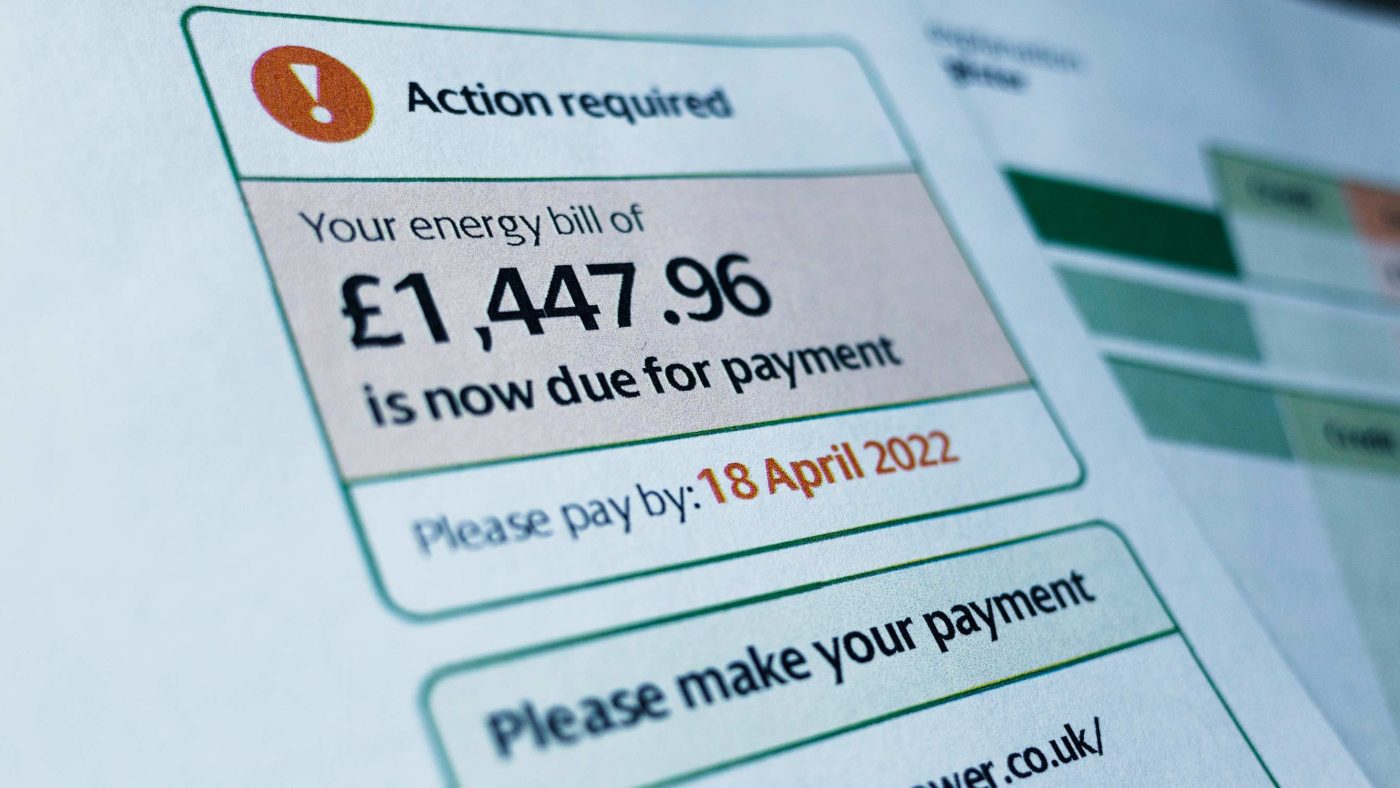‘It’s simple,’ the Don’t Pay UK campaign website claims, ‘we are demanding a reduction of energy bills to an affordable level’. If they are ‘ignored’, and one million people make the pledge, they will cancel their direct debits on October 1. So far 94,000 people have signed up.
If only things were that simple. If only it was possible to wish lower prices into existence. If only non-payment could solve all our woes. In reality, this campaign will be disastrous for those duped into participating and risks making an already horrendous energy crisis even worse. The campaign seeks to take advantage of vulnerable people, giving them false hope while doing nothing to help them. It’s morally reprehensible fantasy politics masquerading as activism.
The basic point here is, to use their word of choice, simple: refusing to pay does not make a bill suddenly disappear. Quite the opposite, in fact. Non-payment opens up a world of pain, from late payment fees to bailiffs at the door and even having your energy cut off (though there are various legislative protections against this during the winter months). It also risks making energy even less affordable if customers are moved on to a more expensive pre-payment meter as a result.
That’s precisely why both Citizens Advice and debt charity Stepchange have warned people off Don’t Pay UK’s campaign. Clearly, there are no easy options here, but those who are struggling to pay have been encouraged to contact their provider, who can offer support including grants and negotiate an affordable payment plan. The fact there are alternatives to not paying is shamefully absent from Don’t Pay UK communications.
Putting aside the ramifications for individuals, the campaign is also driven by a manifestly false premise: that higher energy bills are driven by ‘greedy’ companies, paying themselves big profits while ripping off consumers.
A brief look at the numbers shows this is entirely untrue. Just 3% of a standard energy bill is profit for the supplier – the vast majority of the cost is wholesale, network (pipes and wires), and operating costs (billing and metering). In fact, in recent years many suppliers have lost money as a result of the economic slowdown during Covid and a price cap that failed to keep pace with higher wholesale costs.
These higher wholesale costs, especially following Russia’s invasion of Ukraine, are the main reason prices have risen for consumers. Energy suppliers, who must purchase wholesale on behalf of consumers, have not massively benefited. They do not have fat profit margins to trim in order to bring down bills. (This whole situation also demonstrates the stupidity of the so-called ‘energy price cap,’ which has reduced consumer choice without lowering prices.)
Granted, there have been good profits for the energy majors, such as BP and Shell, who provide gas and oil – but even that extra revenue follows years of poor returns, and will result in significantly more tax revenue. Their profits are also on global sales, not just from the UK. If the Government tried to set artificially lower prices for purchasing wholesale supplies the risk would be shortages and blackouts.
The thing is, it’s much easier to have a pop at energy companies than look at the underlying structural issues causing higher prices. One of these is that, since the period privatisation and liberalisation culminating at the turn of the millennium, the state has taken ever greater control over the energy sector.
For example, the state effectively decides what power stations are built and where through a complex system of administrative approvals. They have various strategies and targets influenced by vested interests. There are green energy policies which have heavily discouraged investment in fossil fuels while requiring billpayers to subsidise wind and solar. The Government has also effectively banned the likes of fracking or onshore wind that could provide greater suppliers.
All of which led Oxford academic Dieter Helm to warn in 2017 that there were now so many interventions in the electricity market ‘that few if any could even list them all and their interactions’. ‘Complexity is itself a major cause of rising costs,’ Helm added.
What about Don’t Pay UK’s comparisons of our current woes with the Poll Tax riots of the late 80s and early 90s?
It’s always tempting to draw a historical analogy, but this situation really isn’t remotely comparable. The Government withdrawing one new tax and then getting revenue from elsewhere is not the same as refusing to pay private companies. These companies do not have other revenue sources.
Bear in mind too that higher wholesale prices have already seen 28 companies go bust since June 2021. If more people refuse to pay it risks even more providers being put out of business, which will just mean even higher bills for consumers. Clearing up after failed energy companies has already cost consumers £2.7 billion – or £94 per customer – in higher bills. Taxpayers could even end up being called on to bail out the companies. In the end, somebody has to pay.
None of this is to underplay the seriousness of what is coming down the track. This winter will be tragic for many households. The cost of energy will go up significantly over the coming months, and many will be pushed into energy poverty – forced to choose between heating their homes or putting food on the kitchen table. There is a case for further state support for vulnerable households. There is no case, however, for telling people to bury their heads in the sand.
Click here to subscribe to our daily briefing – the best pieces from CapX and across the web.
CapX depends on the generosity of its readers. If you value what we do, please consider making a donation.


